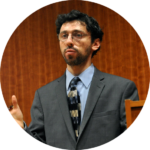Sagan

First Jewish presence: approximately 12th-13th century; peak Jewish population: 170 in 1880; Jewish population in 1933: 78
Jews settled in Sagan (Polish: Żagań), in Lower Silesia, probably during the 12th or the 13th century. By the mid- 14th century, most were living on the Judengasse, or “Jews’ alley,” (present-day Słowackiego). In 1462, after a series of pogroms, Duke Jan II (Żagań’s last ruler from the Piast dynasty) expelled Jews from Sagan. It was not until the 19th century that a new Jewish community was established there, peaking at 170 members in 1880. In 1813, the community consecrated a cemetery on Heideberg, later moving it to Lessingstrasse (present-day Berka Joselewicza). We also know that in 1857, local Jews purchased the town arsenal building, located in the medieval bastion, for use as a synagogue. Sagan’s Jewish population figures for 1933, 1937 and 1939 are, respectively, 78, 30 and seven. On Pogrom Night (November 1938), the synagogue was set on fire and Jewishowned businesses were destroyed. Additional information about the community’s fate during the Nazi period is not available, but Yad Vashem lists the name of a Sagan Jew, Moise Reifman, who was killed in Auschwitz. A memorial plaque was never erected next to the former synagogue or cemetery, and Sagan is no longer home to a Jewish community.Benjamin Rosendahl
Copyright: Pogrom Night 1938 - A Memorial to the Destroyed Synagogues of Germany/ Germansynagogues.com
Notes
Sources: The Encyclopedia of Jewish Life Before and During the Holocaust, Shmuel Spector [Ed.], [publisher] Yad Vashem and the New York University Press, 2001., Führer durch die Jüdische Gemeindeverwaltung und Wohlfahrtspflege in Deutschland 1923-1933, Andreas Nachama, Simon Hermann [Eds.], [publisher] Edition Hentrich, 1995.
Details
| Date Added | Jan 30, 2020 |
|---|---|
| Category | Residential |
| Country | PL |
| State | Lubusz |
| City | Sagan (Żagań) |
| Exhibits | Pogrom Night 1938 - A Memorial to the Destroyed Synagogues of Germany |
Have additional information, photos, connections, or other resources to contribute?
Help Us in the race against time to time document Jewish history!






